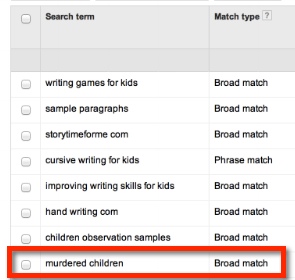Business owners and marketers often wonder how much they should invest in PPC. Large corporations may have big budgets allocated to paid search that just has to be spent; but smaller businesses are typically more budget sensitive, and want to know just how much to put in to get something out of it without breaking the bank.
What I’m about to say may disappoint you: there is no cut and dry formula for determining a generic budget for PPC. But – and this is a big “but” – you shouldn’t spend any money on PPC – not one cent – if you don’t approach it the right way.
And the right way means never having to say: “PPC is too expensive,” because the point of PPC is to make your business money, not to put you in the hole. And when managed the right way, you’ll find a budget that works for your business in order to get a nice return.
Here at Group Twenty Seven, we’ve seen some pretty ugly accounts and heard almost every horror story in the book when it comes to businesses wasting money in their PPC accounts.
But it’s not so easy for those who don’t do PPC for a living to know what they’re doing wrong, how much they should be spending to get a solid return and how to evaluate their accounts at any given time.
So in this post, we’ll talk about some common ways small businesses waste money in PPC, and offer some pro tips on how to avoid them.
How to Waste Money on PPC
First, let’s talk about a couple sure-fire ways to waste your PPC budget:
- Letting Google fool you into thinking PPC is simple.
- Bidding on the wrong keywords for your business.
1. Letting Google Fool You into Thinking PPC is Simple
Google does a lot of things really well, and one of them is explaining complicated concepts in a simple manner that anyone can understand. So when you see Google’s classic form of marketing in action, don’t be fooled.
Videos like this one set to upbeat instrumentals with happy business owners who experienced ROI from PPC in a snap is exactly what I’m referring to:
See, in order to open up an AdWords account, all you need is a credit card. In order to manage PPC, well, that takes skill. And not all business owners have the time to invest in learning and managing PPC the right way. It can be a full-time job – we happen to know that first hand!
2. Bidding on the Wrong Keywords for the Wrong Audience
One of the most common mistakes we see with small businesses and PPC is bidding on the wrong keywords. When you bid on the wrong keywords, you drive the wrong kind of traffic to your site.
This often happens when too generic of keywords are bid on, or worse, the completely wrong keyword. Those keywords won’t attract the right users because the keyword is too vague, and chances are, you don’t have what the searcher is looking for. You might be in the same “area” (industry, topic, idea) as the keyword, but that typically won’t get you the sale.
When the wrong users come to your site, they don’t find what they’re looking for and they leave. But you still pay for those clicks.
Let me give you a real example of bidding on the wrong keywords. One organization in the education sector that we spoke with spent upwards of $7,000 a month on PPC. One course they wanted to attract attention to was for people interested in writing for children.
Because they were using a tool to help them discover keywords to bid on and they weren’t up to speed with the intricacies of PPC, they ended up paying for the term “murdered children.”
So the takeaway here is don’t be one of those businesses that bids on “murdered children,” OK?
7 Tips for Small Business Owners to Manage PPC Budget
Let’s switch gears now and look at seven ways small business owners can protect their PPC budgets and really get to know the value of PPC campaigns beyond just the surface data.
Follow these pro tips and you’re on your way to making more informed decisions about your PPC campaigns:
- Keep your budget open. If you have the right PPC manager who knows what he or she is doing, when they ask you to keep your budget open, try to keep an open mind. Keeping your PPC budget open does not mean the PPC manager is going to spend that amount each month indefinitely. It merely allows you to remain competitive on a daily basis in order to get more ROI. If you exhaust your daily campaign budgets each day after only a few clicks, the chances of conversion – especially on those more expensive keywords – goes down.
- Know your average sale to determine your breaking point. Let’s say your average sale is $100 and you have good margins. You might not mind paying $20 or even $30 for an acquisition through PPC (also known as cost per acquisition or CPA). It’s different for every organization, but thinking in these terms can help you wrap your head around the money you’re investing in paid search.
- Think about the lifetime value of your PPC click. Do your users buy once and then bail forever, or do they come back again for the same product or something else you offer? Factor in the lifetime value of your customer, and then build that into your PPC campaign budget. Then, think about how to nurture that post-click relationship to ensure you’re maximizing value, whether it’s email offers or something else.
- Start with phrase and exact match. Often, when inheriting accounts, we see keywords set to broad match. This is the “loosest” of keyword match types and more times than not, causes massive budget waste. It also happens to be the default setting when adding keywords to ad groups, too. Go figure! Make sure traffic is targeted by using phrase and exact match to start, so you can gauge what sort of traffic and conversions you’re seeing. Then you can decide if opening up to modified broad match is an option for you. We rarely use (old) broad match these days but it does have it’s benefits when managed closely.
- Don’t let the receptionist run your PPC campaign. Just because your receptionist has some free time and she’s a detail-oriented person does not mean you should outsource your PPC to admin staff. Ever. Managing PPC is a skill that takes a lot of time to learn and an even longer time to learn from mistakes. Whether you have $10,000 a month on the line or $10, not knowing how to manage PPC is a waste of any amount of money.
- Don’t use PPC tools unless you have the wisdom to oversee them. There are paid search tools out there that promise to make things easier, for example, keyword tools. But be careful. If you don’t have the wisdom to understand what these tools are doing to your PPC campaign, how will you ever know if it’s working for you?
- Don’t chase the rainbow. Make sure you know where your conversions are coming from in your PPC campaign. If, by chance, you had a wacky keyword convert once and you continue to bid top dollar for that keyword because you think it’s “the one,” you’re just finding another way to waste that PPC budget. This is when knowing when enough is enough is key.
Finally, here’s a good resource from Google on how to bid in AdWords and what it can mean to your bottom line. It’s a few years old, but the principles are still valuable today:
We hope this post helps you evaluate your PPC campaign and the way it’s managed. All businesses should enjoy a happy return with their paid search, so don’t settle for less!








